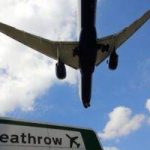
The number of children in private education has dropped by 10,000 over the past year as parents anticipate the introduction of VAT on school fees in January, according to the Independent Schools Council (ISC).
The organisation estimates the move could cost the government an additional £93 million to educate these pupils in state schools.
A survey conducted by the ISC across nearly 1,200 fee-charging schools revealed a 1.7% decline in enrolment, with the steepest drop—4.6%—occurring in year seven, the first year of secondary education. This data compares pupil numbers from September 2022 to September 2023.
The government’s decision to add 20% VAT to private school fees is set to take effect in January 2025, a move Labour claims will generate £1.5 billion in additional funding for state education and teachers. While ministers have suggested schools do not have to pass the full VAT cost onto parents, few schools have committed to absorbing the charges.
Wales has been hardest hit, with a 5.2% drop in private school enrolment, followed by Yorkshire at 2.6%, and southwest England at 2.4%. The ISC noted that the decline is particularly affecting smaller schools and those with lower fees.
Smaller schools with fewer than 300 students have seen pupil numbers fall by 3.2%, triple the rate experienced by larger institutions. Additionally, schools with fees more than 10% below the average have experienced an average reduction of 7.5 pupils per school, compared to 5 pupils in higher-fee institutions.
The ISC has raised concerns about the impact of the VAT policy on small schools, faith schools, and pupils with special educational needs and disabilities (SEND). Julie Robinson, the ISC’s general secretary, said: “Parents are already removing their children from independent schools as a result of the government’s plans to charge VAT. This is just the tip of the iceberg, with many small schools already at risk of closure.”
The ISC is considering a High Court challenge to delay the implementation of the VAT on school fees. A separate legal challenge is also being pursued by the law firm Sinclairs on behalf of a mother of a child with special needs.
The government has pledged that pupils with an Education Health and Care Plan (EHCP) will not have to pay VAT on school fees. However, many children with special needs who do not have an EHCP will be subject to the additional charge. This year’s ISC census revealed that 20% of children in private schools have a special need or disability.
As the population bulge in secondary-aged children is expected to peak in 2029, the VAT policy may further strain both private and state schools. A government spokesperson said: “Ending tax breaks on private schools will help to raise the revenue needed to fund our education priorities.”
The government’s full analysis of the VAT policy and its expected impacts, based on Office for Budget Responsibility (OBR) costings, is expected to be published in the upcoming budget.
Read more:
10,000 fewer children in private schools ahead of Labour’s VAT policy, warns sector




